March 21st, 2021
Consider this ice breaker as you gather for the Spotlight:
Share a time when you were trying to solve a problem and ended up finding the answer where you least expected it, maybe even while doing something totally unrelated?
Share a time when you were trying to solve a problem and ended up finding the answer where you least expected it, maybe even while doing something totally unrelated?
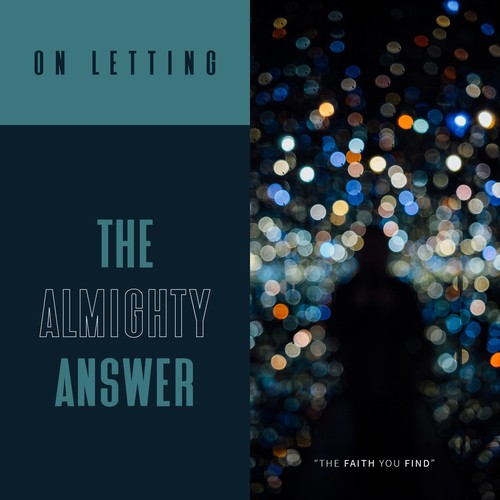
Focus 3 | The Faith You Find
Now that you’ve broken the ice, lets answer another question - this one about moonshots.
(And welcome, by the way! It’s great that you’re here!)
(And welcome, by the way! It’s great that you’re here!)
See what this Spotlight—and series—is focused on.
Tap on the words "Focus 3" in the image below to read this Spotlight's summary.
Tap on the words "Focus 3" in the image below to read this Spotlight's summary.
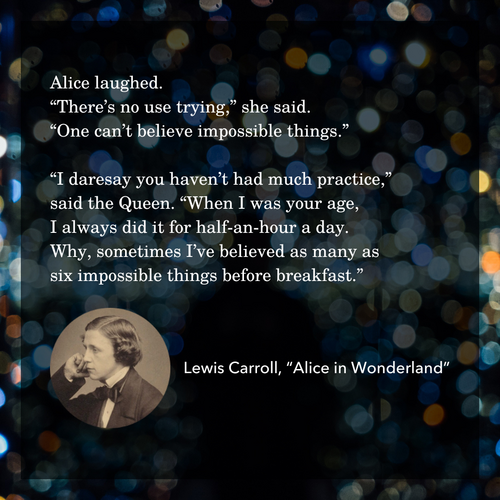
Do you believe impossible things?
Most people—even those who aren’t religious—believe a few things that are technically impossible. Everybody—no matter who they are—believes a plethora of things for which they’ve never personally seen proof.
Sociologists and historians suggest that the quality that leads human beings to hold beliefs is the very same quality that led them to figure out fire and medicine: Humans comprehend cause and effect. Therefore, humans think that if they see something, it must have a cause and it will have an effect.
Engineering new knowledge based on causes and effects has led humans to make decisions, develop technologies, and repeatedly distinguish our species from every other. But this ability—to theorize based on cause and effect—is a double-edged sword. It’s the source of all your questions (even if it wasn’t meant to be.)
Today, we're entertaining the idea that the purpose for humanity’s ability to comprehend cause and effect is not (exclusively) answering questions and gaining knowledge, but is instead (primarily) leading us toward faith?
Most people—even those who aren’t religious—believe a few things that are technically impossible. Everybody—no matter who they are—believes a plethora of things for which they’ve never personally seen proof.
Sociologists and historians suggest that the quality that leads human beings to hold beliefs is the very same quality that led them to figure out fire and medicine: Humans comprehend cause and effect. Therefore, humans think that if they see something, it must have a cause and it will have an effect.
Engineering new knowledge based on causes and effects has led humans to make decisions, develop technologies, and repeatedly distinguish our species from every other. But this ability—to theorize based on cause and effect—is a double-edged sword. It’s the source of all your questions (even if it wasn’t meant to be.)
Today, we're entertaining the idea that the purpose for humanity’s ability to comprehend cause and effect is not (exclusively) answering questions and gaining knowledge, but is instead (primarily) leading us toward faith?
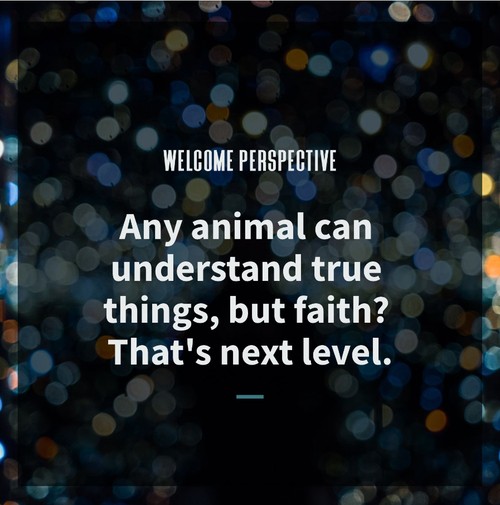
Begin the Worship section with Psalm 139. Have one member of the group read the verses.
Psalm 139:1–18
1 You have searched me, Lord, and you know me.
2 You know when I sit and when I rise;
you perceive my thoughts from afar.
3 You discern my going out and my lying down;
you are familiar with all my ways.
4 Before a word is on my tongue
you, Lord, know it completely.
5 You hem me in behind and before,
and you lay your hand upon me.
6 Such knowledge is too wonderful for me,
too lofty for me to attain.
7 Where can I go from your Spirit?
Where can I flee from your presence?
8 If I go up to the heavens, you are there;
if I make my bed in the depths, you are there.
9 If I rise on the wings of the dawn,
if I settle on the far side of the sea,
10 even there your hand will guide me,
your right hand will hold me fast.
11 If I say, “Surely the darkness will hide me
and the light become night around me,”
12 even the darkness will not be dark to you;
the night will shine like the day,
for darkness is as light to you.
13 For you created my inmost being;
you knit me together in my mother’s womb.
14 I praise you because I am fearfully and wonderfully made;
your works are wonderful,
I know that full well.
15 My frame was not hidden from you
when I was made in the secret place,
when I was woven together in the depths of the earth.
16 Your eyes saw my unformed body;
all the days ordained for me were written in your book
before one of them came to be.
17 How precious to me are your thoughts, God!
How vast is the sum of them!
18 Were I to count them,
they would outnumber the grains of sand—
when I awake, I am still with you.
Psalm 139:1–18
1 You have searched me, Lord, and you know me.
2 You know when I sit and when I rise;
you perceive my thoughts from afar.
3 You discern my going out and my lying down;
you are familiar with all my ways.
4 Before a word is on my tongue
you, Lord, know it completely.
5 You hem me in behind and before,
and you lay your hand upon me.
6 Such knowledge is too wonderful for me,
too lofty for me to attain.
7 Where can I go from your Spirit?
Where can I flee from your presence?
8 If I go up to the heavens, you are there;
if I make my bed in the depths, you are there.
9 If I rise on the wings of the dawn,
if I settle on the far side of the sea,
10 even there your hand will guide me,
your right hand will hold me fast.
11 If I say, “Surely the darkness will hide me
and the light become night around me,”
12 even the darkness will not be dark to you;
the night will shine like the day,
for darkness is as light to you.
13 For you created my inmost being;
you knit me together in my mother’s womb.
14 I praise you because I am fearfully and wonderfully made;
your works are wonderful,
I know that full well.
15 My frame was not hidden from you
when I was made in the secret place,
when I was woven together in the depths of the earth.
16 Your eyes saw my unformed body;
all the days ordained for me were written in your book
before one of them came to be.
17 How precious to me are your thoughts, God!
How vast is the sum of them!
18 Were I to count them,
they would outnumber the grains of sand—
when I awake, I am still with you.
Continue with the guided audio meditation below.
Listen to this song that asks questions and responds with faith.\
Faithful by Him + Her is written to remind you that God is faithful even when it seems like what’s happening isn’t evidence of his faithfulness.
Listen to the song and consider your list of questions and burdens, so you can think about how this particular concept speaks to lists like these—lists that everybody, including you, has.
Faithful by Him + Her is written to remind you that God is faithful even when it seems like what’s happening isn’t evidence of his faithfulness.
Listen to the song and consider your list of questions and burdens, so you can think about how this particular concept speaks to lists like these—lists that everybody, including you, has.
Let's close this Worship section with this prayer:
Leader: Lord, you have searched me and you know me. You understand my thoughts and my movements; you are familiar with all my ways.
All: You know our words before we speak them, and you surround us with your presence.
Leader: Where can we go from your Spirit? Where can we flee from your presence?
All: Even in our highest highs and lowest lows, you are there, guiding us and holding us.
Leader: You created our inmost being; you knit us together in our mother's wombs. We are fearfully and wonderfully made.
All: Your works are wonderful, and our souls know that full well.
Leader: In times of doubt and uncertainty, remind us that faith does not require us to have all the answers.
All: Help us to embrace the journey, knowing that you walk with us even when we do not see the path clearly.
Leader: Lord, we acknowledge that doubt is a part of our faith journey. We often seek certainty, but we learn to trust in you through the unknown.
All: Search us, O God, and know our hearts; test us and know our anxious thoughts.
Leader: Lead us through our doubts, and help us find peace in your presence.
All: Guide us with your wisdom and love, reassuring us that we are never alone.
Leader: Thank you for knowing us completely and for your constant presence in our lives. May we find strength in our faith and comfort in your unfailing love.
All: Amen.
Leader: Lord, you have searched me and you know me. You understand my thoughts and my movements; you are familiar with all my ways.
All: You know our words before we speak them, and you surround us with your presence.
Leader: Where can we go from your Spirit? Where can we flee from your presence?
All: Even in our highest highs and lowest lows, you are there, guiding us and holding us.
Leader: You created our inmost being; you knit us together in our mother's wombs. We are fearfully and wonderfully made.
All: Your works are wonderful, and our souls know that full well.
Leader: In times of doubt and uncertainty, remind us that faith does not require us to have all the answers.
All: Help us to embrace the journey, knowing that you walk with us even when we do not see the path clearly.
Leader: Lord, we acknowledge that doubt is a part of our faith journey. We often seek certainty, but we learn to trust in you through the unknown.
All: Search us, O God, and know our hearts; test us and know our anxious thoughts.
Leader: Lead us through our doubts, and help us find peace in your presence.
All: Guide us with your wisdom and love, reassuring us that we are never alone.
Leader: Thank you for knowing us completely and for your constant presence in our lives. May we find strength in our faith and comfort in your unfailing love.
All: Amen.
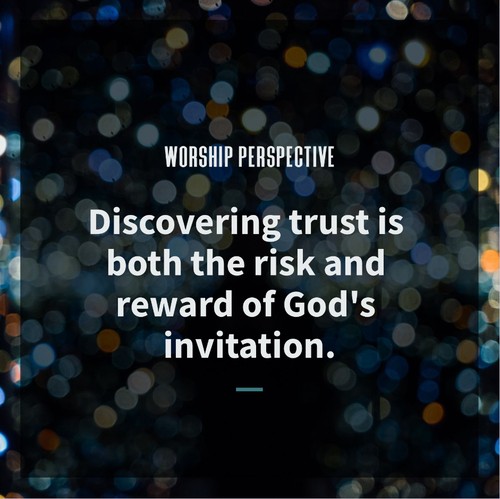
Interact with this presentation to consider what God has for you.
The Bible’s story of Job is remarkable. Pain, doubt, questions, misinformation, and faith are all met with the same thing: The answer of the Almighty. In each part of this series, you’ll walk with a different character from the story through their thoughts.
You heard from Job during the first week of this series (you can check that out here). You heard from his terrible friends during the second week (you can check that out here). Now, hear from a young man named Elihu. Finally, next time, you’ll hear from the voice of God.
Can you find the faith in these words? Before you interact with this image, get out some way to take notes. As you walk through, write down one or two ways Elihu refuses to give up on trusting God even though his friend Job is suffering. (In other words, when he sees Job’s suffering, how is he using faith to explain what’s going on?)
The Bible’s story of Job is remarkable. Pain, doubt, questions, misinformation, and faith are all met with the same thing: The answer of the Almighty. In each part of this series, you’ll walk with a different character from the story through their thoughts.
You heard from Job during the first week of this series (you can check that out here). You heard from his terrible friends during the second week (you can check that out here). Now, hear from a young man named Elihu. Finally, next time, you’ll hear from the voice of God.
Can you find the faith in these words? Before you interact with this image, get out some way to take notes. As you walk through, write down one or two ways Elihu refuses to give up on trusting God even though his friend Job is suffering. (In other words, when he sees Job’s suffering, how is he using faith to explain what’s going on?)
“I have sinned, I have perverted what is right,
but I did not get what I deserved.”
Job 33:27
Elihu’s statement here is exactly what God hopes people learn about his treatment of them. Cause-and-effect (I fail so I lose) doesn’t apply here! The faith-full relationship of God and a person changes everything.
Discuss the impact of this change by hovering over (or tapping on) the images below for guidance in comparing what Elihu said in Job 33:27 with Jesus’ words. (Could Jesus have said the same thing?)
but I did not get what I deserved.”
Job 33:27
Elihu’s statement here is exactly what God hopes people learn about his treatment of them. Cause-and-effect (I fail so I lose) doesn’t apply here! The faith-full relationship of God and a person changes everything.
Discuss the impact of this change by hovering over (or tapping on) the images below for guidance in comparing what Elihu said in Job 33:27 with Jesus’ words. (Could Jesus have said the same thing?)
Consider how questions and knowledge are like bridges and islands.
“The God who made the world and everything in it is the Lord of heaven and earth and does not live in temples built by human hands. And he is not served by human hands, as if he needed anything. Rather, he himself gives everyone life and breath and everything else. From one man he made all the nations, that they should inhabit the whole earth; and he marked out their appointed times in history and the boundaries of their lands. God did this so that they would seek him and perhaps reach out for him and find him, though he is not far from any one of us. ‘For in him we live and move and have our being.’ As some of your own poets have said, ‘We are his offspring.’
Acts 17:24–28
The difference between something that can be known and something that has to be believed is the same difference as that between what God created and what he was trying to communicate through the creating work.
Hopefully, you’ve already started considering this (in the previous Spotlight) in terms of a bridge.
Watch the video below to review the metaphor of the bridge. For each part of the bridge that is highlighted, remind one another of the things you discussed: how is each part of the bridge a metaphor for the support that people can receive as they carry their own questions?
Note: The video has no sound, so you can just talk as it happens.
“The God who made the world and everything in it is the Lord of heaven and earth and does not live in temples built by human hands. And he is not served by human hands, as if he needed anything. Rather, he himself gives everyone life and breath and everything else. From one man he made all the nations, that they should inhabit the whole earth; and he marked out their appointed times in history and the boundaries of their lands. God did this so that they would seek him and perhaps reach out for him and find him, though he is not far from any one of us. ‘For in him we live and move and have our being.’ As some of your own poets have said, ‘We are his offspring.’
Acts 17:24–28
The difference between something that can be known and something that has to be believed is the same difference as that between what God created and what he was trying to communicate through the creating work.
Hopefully, you’ve already started considering this (in the previous Spotlight) in terms of a bridge.
Watch the video below to review the metaphor of the bridge. For each part of the bridge that is highlighted, remind one another of the things you discussed: how is each part of the bridge a metaphor for the support that people can receive as they carry their own questions?
Note: The video has no sound, so you can just talk as it happens.
Today, let's expand the metaphor, zooming out to a group of islands connected by a series of bridges. Watch this video (again, no sound) to start visualizing such a system.
Discuss: As people travel from island to island, over bridge after bridge…
Discuss: As people travel from island to island, over bridge after bridge…
- What part of that system seems most analogous to questions?
- What part of that system seems most analogous to answers?
- What part of that system seems most analogous to faith?
Answer these questions, once you’ve established what you feel each part of the image represents. Remember, this isn't a parable from the Bible or something, so you can't get the metaphor "wrong."
- Did you decide that the islands were the answers because they were solid? Why might a person tend to think of answers as more solid than faith?
- Do you think God considers question+answer a more powerful formula than question+faith?
- What happens if you reconsider the metaphor, switching the answers and faith metaphors you chose?
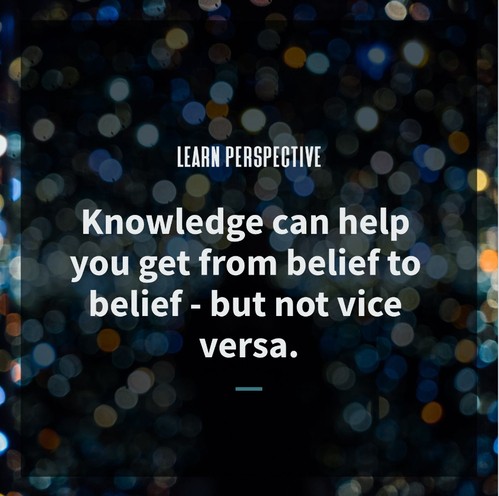
Here's the same list of submitted questions that you saw last week:
- Why does God not interact with us in a tangible way anymore?
- Does God truly always have a plan for my future and my faith?
- What's up with Abraham being told to sacrifice Isaac? Why is he praised for his blind faith in God when that would have been an evil act?
- How much does God want us to get better at being holy? How much does he want us to want to get better?
- Why do bad things happen to some Christians, while blessings are seemingly poured out on some non-Christians?
- How do you know if you feel God directing you to do something? How do you know it's God and not your mind, subconscious, circumstances, society, coincidence, self, etc
- How accepting is God with regard to the diversity of what people believe about Him/religion?
- Noah's ark seems fake. Have you ever watched a zoo keeping show? How could Abraham and his sons have done all the work? How did they bring enough to feed all the animals? Even if subspecies are ignored this still seems impossible. Did God make all the animals go into a coma for weeks? Also, that story is grusome and series, why do we make it so silly and fun for children.
- Where Galatians 3:28 says "there is neither male nor female: for you are all one in Christ Jesus", does that mean that there isn't any gender separation anymore and that gender can be a spectrum?
- Why does God give people gifts if they can’t/don’t use them? Doesn’t he know?
Let's practice some Compassionate Question Reception
You'll practice receiving questions with compassion and openness, fostering connection rather than seeking to correct or be right. First, as a group, read through the five suggested steps below, which are adapted from sociological research on receiving questions. Then, pair up with a partner and give it a try using one of the questions above.
Step 1: Active Listening
Instructions:
Step 2: Acknowledgement
Instructions:
Step 3: Reflecting Back
Instructions:
Step 4: Connecting
Instructions:
Step 5: Offering Support
Instructions:
Practice Round
Instructions:
Reflection: After practicing, take a few minutes individually to reflect on the experience. Consider the following questions:
Remember, the goal is to create an environment where people feel safe to bring their questions, knowing they will be met with compassion and understanding. This practice helps build a community where everyone can explore their faith together.
You'll practice receiving questions with compassion and openness, fostering connection rather than seeking to correct or be right. First, as a group, read through the five suggested steps below, which are adapted from sociological research on receiving questions. Then, pair up with a partner and give it a try using one of the questions above.
Step 1: Active Listening
Instructions:
- One person will ask a question from the list provided.
- The other person will practice active listening.
- Make eye contact and nod occasionally to show you are engaged.
- Avoid interrupting or planning your response while the other person is speaking.
- Focus entirely on the question being asked and the feelings behind it.
Step 2: Acknowledgement
Instructions:
- After listening to the question, acknowledge the question without jumping to provide an answer.
- Use phrases that validate the question and the person asking it.
- Show empathy and understanding.
- "That's a really thoughtful question."
- "I can see why you'd wonder about that."
- "It's okay to have questions like that."
Step 3: Reflecting Back
Instructions:
- Reflect back what you heard to ensure you understood the question correctly and to show you were listening.
- Paraphrase the question or key points.
- Keep your tone neutral and supportive.
- "So, you're wondering about why God doesn't interact with us in a tangible way anymore. Is that right?"
- "It sounds like you're grappling with how God can have a plan for our future and faith. Did I get that right?"
Step 4: Connecting
Instructions:
- Seek to make a personal connection with the questioner. Share a related thought or feeling without trying to provide an answer.
- Be honest and open.
- Share your own experiences or thoughts if relevant.
- "I've had similar questions myself, and it's something I still think about."
- "That question reminds me of a time when I was also trying to understand this better."
Step 5: Offering Support
Instructions:
- Offer support and encouragement. Let the questioner know that it's okay to have these questions and that they are not alone.
- Be reassuring and kind.
- Encourage further exploration and conversation.
- "It's great that you're asking these kinds of questions. It shows you're really thinking deeply about your faith."
- "I'm glad you felt comfortable sharing that with me. Let's keep talking about this whenever you feel like it."
Practice Round
Instructions:
- Take turns with your partner asking and receiving questions.
- Follow the steps: listen, acknowledge, reflect, connect, and support.
- After each round, provide each other with feedback on what felt supportive and what could be improved.
- Focus on specific actions that were helpful.
- Offer constructive suggestions kindly.
Reflection: After practicing, take a few minutes individually to reflect on the experience. Consider the following questions:
- How did it feel to ask a question and have it received compassionately?
- How did it feel to receive a question without needing to provide an answer?
- What did you learn about fostering a safe space for questions?
Remember, the goal is to create an environment where people feel safe to bring their questions, knowing they will be met with compassion and understanding. This practice helps build a community where everyone can explore their faith together.
Feel free to submit a prayer request by filling out the below form.
(If you choose to make your request public, you'll see it display in the Current at the end of the Spotlight along with anyone else who did the same.)
(If you choose to make your request public, you'll see it display in the Current at the end of the Spotlight along with anyone else who did the same.)
Pray through your requests—together—as a group.
After submitting your requests in the above form, take some time to share with your group whatever requests the group might have for this week.
After submitting your requests in the above form, take some time to share with your group whatever requests the group might have for this week.
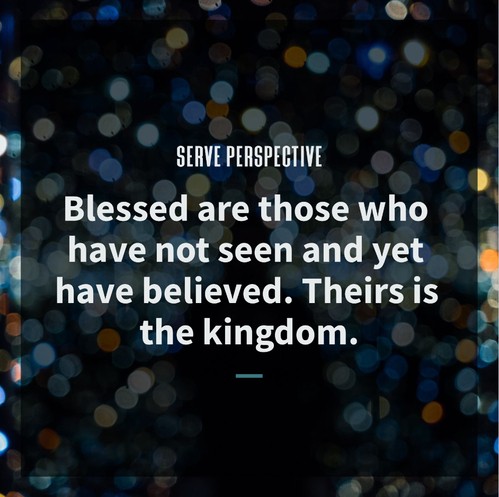
Listen and meditate on this song as we close this Spotlight.
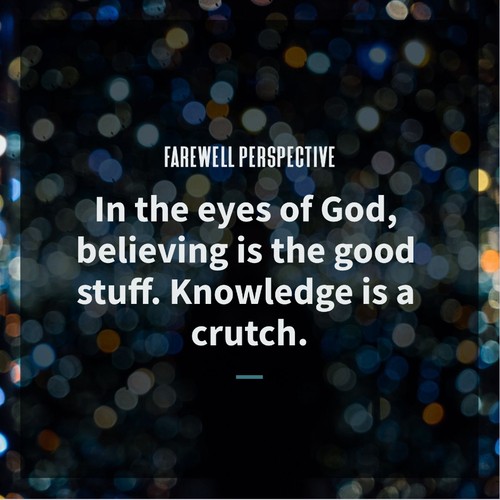
Let's wrap things up by taking a look at what's Current at Illume.
Tap on the buttons in the frame below to see what’s currently happening at Illume—information on everything from current and upcoming online content to live events and opportunities to serve in the community can all be found here.
Tap on the buttons in the frame below to see what’s currently happening at Illume—information on everything from current and upcoming online content to live events and opportunities to serve in the community can all be found here.
Posted in On Letting the Almighty Answer

No Comments